June 9, 2025 | 16:06 GMT +7
June 9, 2025 | 16:06 GMT +7
Hotline: 0913.378.918
June 9, 2025 | 16:06 GMT +7
Hotline: 0913.378.918
Last weekend, in Thanh Phu district, Ben Tre province, the Department of Cooperatives and Rural Development (DCRD), in collaboration with Nam Bo Agriculture College (NBCA), organized a conference to promote the spirit of entrepreneurship, orient agricultural vocational training, and create jobs in the Southern region.
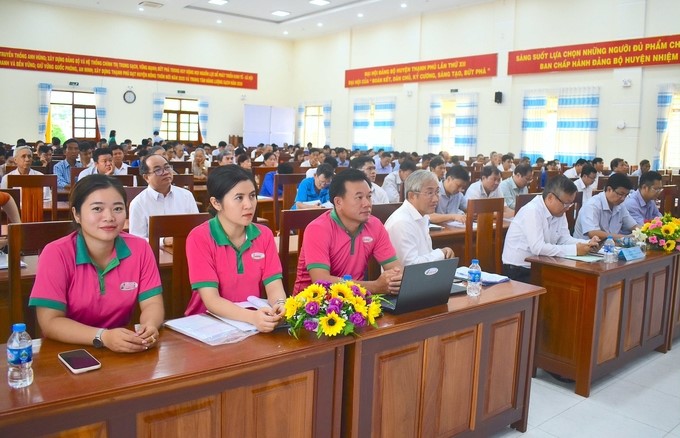
A conference to promote the spirit of entrepreneurship, orient agricultural vocational training, and create jobs in the Southern region took place on September 29 in Thanh Phu district, Ben Tre province. Photo: Minh Dam.
In order to encourage and guide the poor and poor households to have knowledge and experience in labor and production, in recent times, the Government has launched action programs and many policies to support vocational training for rural labor, along with circulars of ministries regulating the work of consulting careers, jobs, and supporting entrepreneurship in educational institutions and vocational education institutions.
In Ben Tre, Mr. Vo Tien Si, Deputy Director of the Department of Agriculture and Rural Development, said that the Department has coordinated with the Department of Labor, War Invalids, and Social Affairs, local authorities, and vocational education institutions at all levels to organize nearly 90 classes (126 classes expected by the end of 2023) of agricultural vocational training for thousands of students, with a total estimated cost of over VND 4.6 billion. In particular, the classes focus on training some occupations, such as techniques for planting and caring for coconut trees and ornamental plants; techniques for raising cows, goats, giant freshwater prawns, whiteleg shrimp, etc.
Training contents focus on enhancing the value of key products and developing OCOP products, good production processes, and organic agriculture with disease safety. After the course, students are granted certificates according to regulations, and 80% of rural workers have jobs through applying new knowledge to production to expand production and increase productivity.
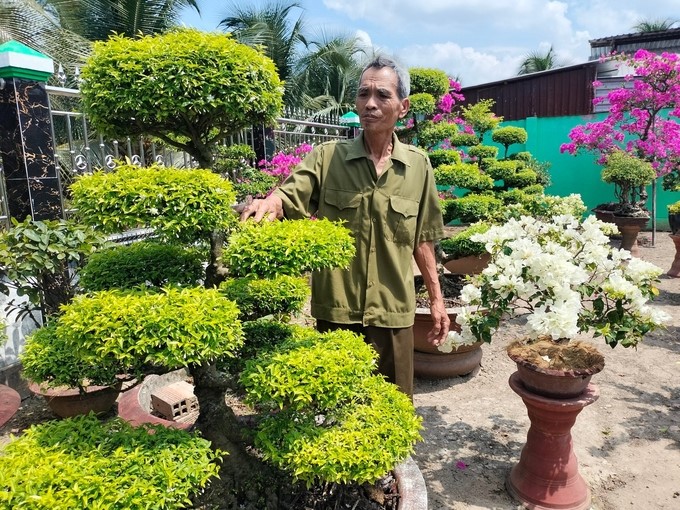
It is expected that in two years (2022 - 2023), Ben Tre province will organize 126 classes of agricultural vocational training, focusing on some occupations such as techniques for planting and caring for coconut trees and ornamental plants; techniques for raising cows, goats, giant freshwater prawns, whiteleg shrimp, etc. Photo: Minh Dam.
Thanh Phu district is a locality with many difficulties in Ben Tre province. The district has 18 administrative divisions of communes and towns, with up to 8 communes in particularly difficult coastal areas. The whole district has nearly 40,000 (47.5%) workers in sector I (agro-forestry-fishery and veterinary medicine), but only over 2,700 (nearly 7%) are trained workers. In general, the rate of trained workers in sector I is still low compared to development needs.
According to Mr. Le Thanh Phong, Head of the Thanh Phu Department of Labor, War Invalids, and Social Affairs, with the funding from the “National Target Programme on Sustainable Poverty Reduction for the 2021-2025 period”, the district has coordinated with NBCA and the Southern College for Engineering and Agriculture (CEA) to organize 32 agricultural vocational training classes for 942 rural workers in communes in the coastal areas. The total implementation cost is over VND 1.9 billion. After training, 90% of students have jobs with an income of VND 3.5–7 million/month.
Since then, the poverty rate of Thanh Phu district as well as eight coastal communes has been reduced to the average level in Ben Tre province. The entire district’s poverty rate at the end of 2022 reached 3.39%, while the province's average rate was 3.5%. The rate of near-poor households reached 3.78%, while the province's average rate was 3.66%. Among the district’s coastal communes, only My Hung and Binh Thanh communes have a poverty rate of over 5%, while the rest are under 3.5%.
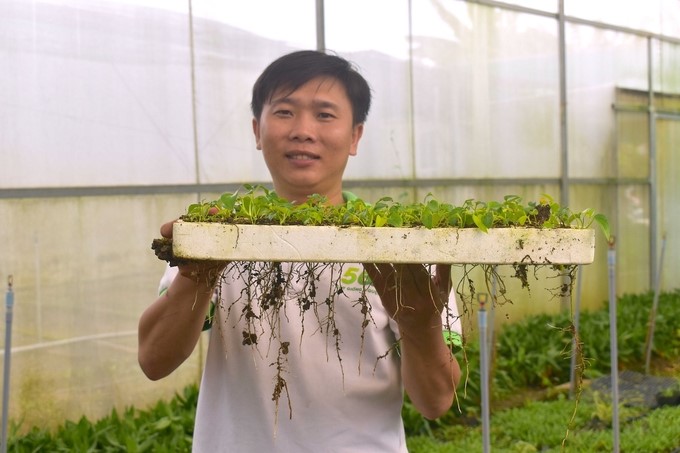
Agriculture is a field with great potential for starting a business and escaping poverty. Photo: Minh Dam.
The conference recorded 11 discussions, contributions, and recommendations from delegates on finding solutions to improve the quality and effectiveness of rural vocational training.
According to Mr. Phan Tan Loi, Vice Principal of CEA, in recent years, the school has focused on training mainly for the agricultural sector, with approximately 6,000 rural workers, mostly in difficult, coastal, and ethnic minority areas. Training support policies are strictly implemented.
"Vocational training has contributed to helping the poor and poor households have the knowledge and skills to get jobs, self-create jobs, and have stable livelihoods. This is an important factor for the poor to escape poverty sustainably. The problem is that support policies need to be stable and continuous to create conditions for workers to have knowledge and skills to develop the family economy," said Mr. Phan Tan Loi.
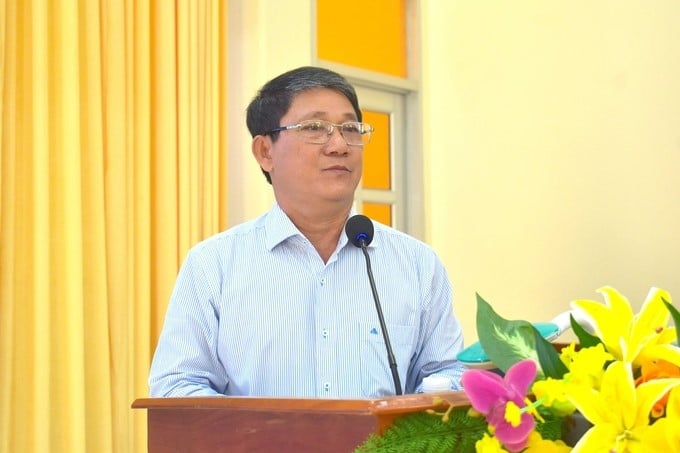
Mr. Phan Tan Loi, Vice Principal of CEA. Photo: Minh Dam.
To create the spirit of entrepreneurship in agriculture, especially in the Southern provinces, Mr. Phan Tan Loi proposed some solutions. Of which, focus on strengthening extensive communication work to change agricultural thinking "from production thinking to agricultural economic thinking." Policies must be designed timely, be consistent with market mechanisms, and mobilize the participation of businesses, society, and beneficiaries by management agencies at all levels.
In addition, the conference also introduced guidelines and policies on developing vocational education and training to improve knowledge and skills for workers in poor areas, disadvantaged coastal areas, and islands. At the same time, connect and promote cooperation between training institutions, workers and cooperatives, businesses, and production and trading establishments in training associated with actual production. In addition, call on businesses and cooperatives to participate more deeply in the vocational training process for workers.
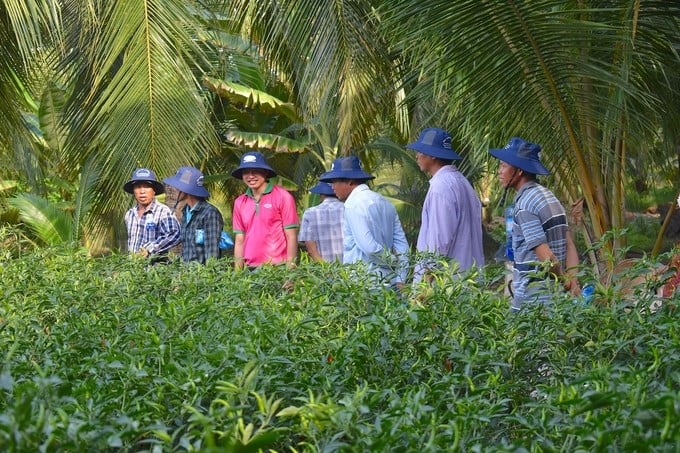
Starting a business in the agricultural sector is no longer too difficult. Photo: Minh Dam.
In order to create motivation to awaken the spirit of entrepreneurship, especially in the agricultural sector, for local union members, Mr. Cao Dinh Tuan, Director of Sen Hong Seeds Co., Ltd., an alumnus of NBCA, shared: "Today, agriculture is not a difficult field to enrich; agriculture is a very easy field to do, and especially in the Mekong Delta with a lot of potential."
Mr. Cao Dinh Tuan’s Sen Hong Seeds Co., Ltd. operates in the field of supplying vegetable seeds to farmers and has over 50 products trusted on the market by farmers, especially Sen Hong peppers 084, 085. To be trusted by farmers, the company always has a team of professional consultants who understand the market and have good expertise. Besides, the company has activities to link production, transfer technology, and create output for farmers.
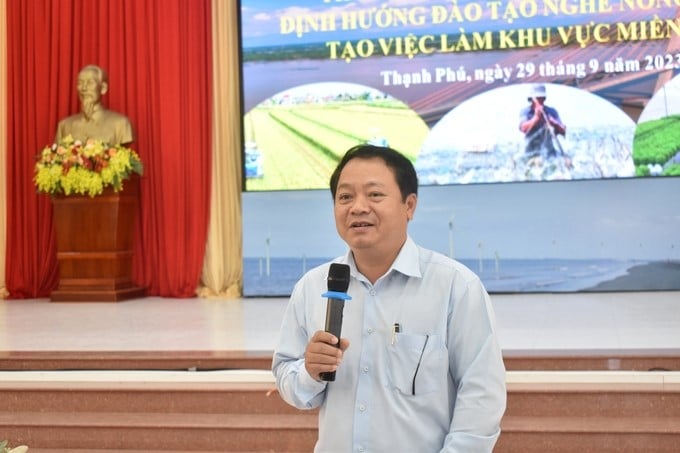
Mr. Nguyen Tien Huyen, Principal of NBCA, shared the school's activities in supporting agricultural vocational training in Ben Tre in 2023. Photo: Minh Dam.
According to MA. Nguyen Tien Huyen, Principal of NBCA, in 2023, the school is being assigned a number of training and support tasks for workers in some localities, especially in coastal areas.
“In this year, we deployed training for farmers in disadvantaged communes in some fields such as farming, animal husbandry, and aquaculture, especially training for crew members, captains, and chief engineers in fishing. Besides, transfer effective production models to people as well as implement conferences to enhance the spirit of entrepreneurship," said Mr. Nguyen Tien Huyen.
Translated by Huyen Vu Thu
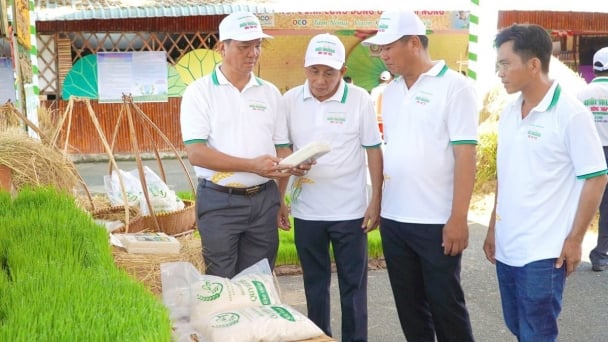
(VAN) Dong Thap has launched a meeting in response to the Action Month for the Environment under the theme 'Live Green - Join Hands for a Green Economy' at Tram Chim National Park.
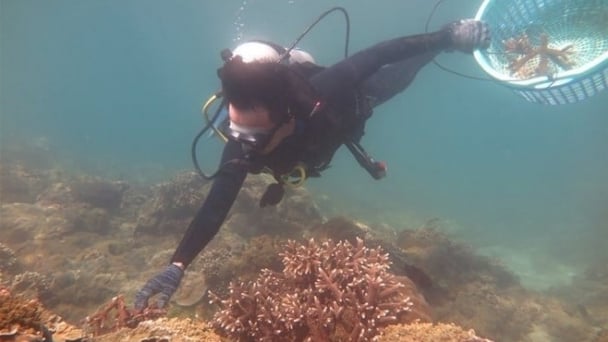
(VAN) The ocean has the capacity to absorb millions of tons of carbon, provided that mangrove forests, coral reefs, and biodiversity are protected.
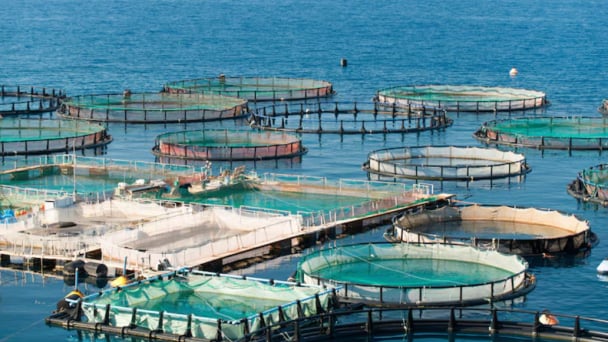
(VAN) Technology is redrawing the map of Vietnamese aquaculture: more modern, greener, and more sustainable.

(VAN) Novel process harnesses machine learning to reveal groups of genes that determine how efficiently plants use nitrogen.

(VAN) Several scientists and farmers are experimenting with soil treatment in some key durian-growing regions such as Cai Lay (Tien Giang), Dak Song, Gia Nghia, and Dak R’lap (Dak Nong).
/2025/05/25/4127-3-073637_820.jpg)
(VAN) Thanks to the promotion from an FAO-implemented project, vegetable production in greenhouses in Moc Chau has seen strong development, from 1.5 hectares in 2021 to nearly 50 hectares in 2024.

(VAN) FAO has recently supported USD 140,000 to implement the project 'Risk mitigation human-animal interface risks through disease control initiatives in pig farming.'